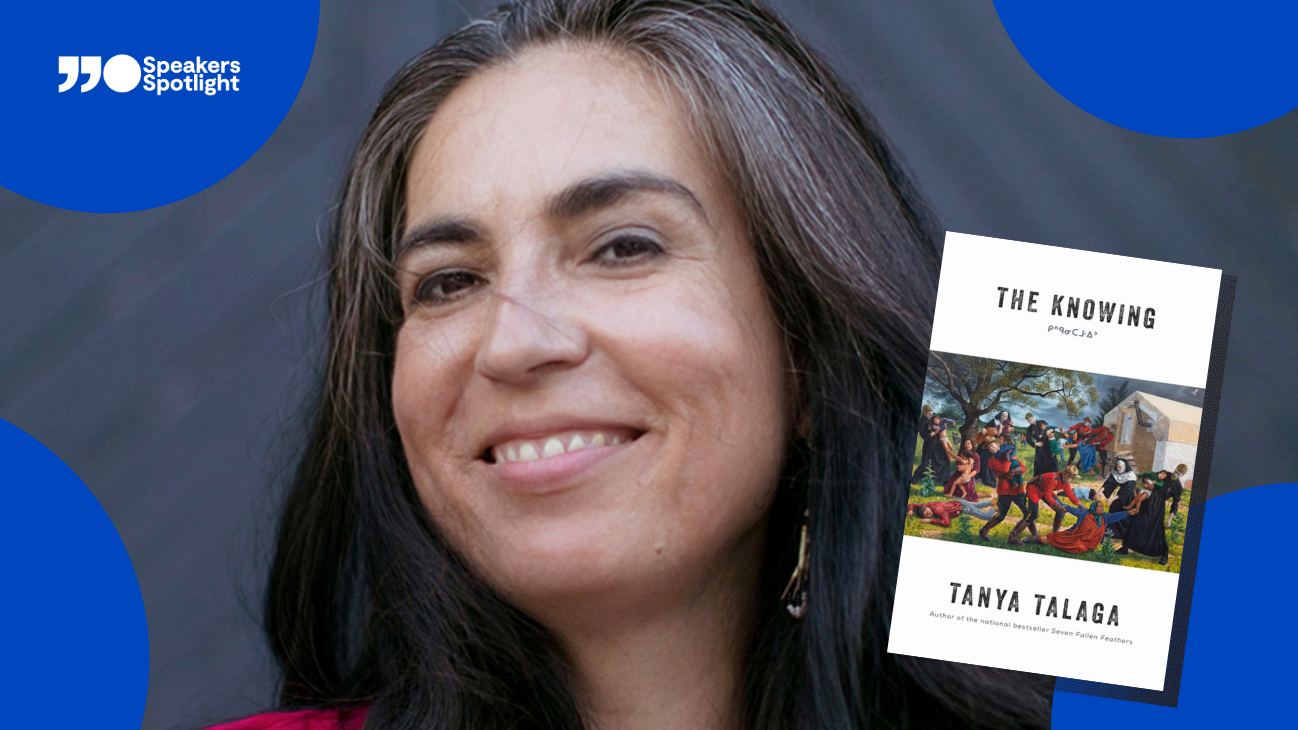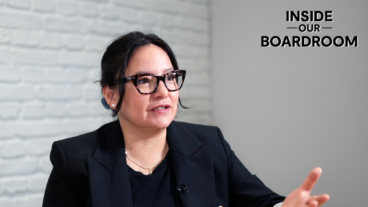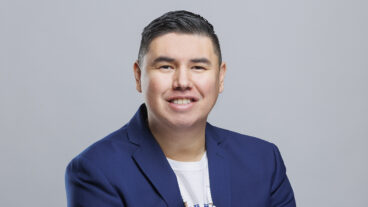Bestselling author and acclaimed journalist Tanya Talaga is retelling Canada’s history through an Indigenous lens in her riveting new book, The Knowing.
Deeply personal and meticulously researched, The Knowing explores Tanya’s family story — beginning with the life of her great-great grandmother Annie Carpenter — spanning decades of government- and Church-sanctioned enfranchisement and genocide. It has been called a seminal unravelling of the centuries-long oppression of Indigenous People that continues to echo throughout the country today.
Available in stores today, Tanya recently spoke with Toronto Life about her new book. They explored the ongoing impact of residential schools, the importance of Indigenous representation, and what still needs to change in order to address colonialism in Canada.
Amplifying Indigenous Voices
Toronto Life: What was your process for writing this book?
Tanya Talaga: A lot of late nights and research. It’s so important to verify the facts, and that’s not easy when you’re dealing with residential schools and records that are sometimes missing or stolen. I worked with many organizations — the National Centre for Truth and Reconciliation; Kim Murray, the special interlocutor for missing children and unmarked graves; Ottawa archivist agency Know History. It took an army.
TL: You’ve been writing about Indigenous issues for a while. How is it different when it’s your own family history?
TT: It’s hard. Before my uncle Hank Bowen died, he gave our family a file full of notes. There were maps of Ontario with little First Nations circled and letters he had written to the governments of Canada and Ontario trying to find his mother, who was sent to a residential school, and his grandmother, who was taken to an asylum in Toronto. That folder made me really sad for a long time. I would open it and just not know where to start.
TL: Where did you eventually start?
TT: I tried to find my great-great-grandmother Annie. I felt like she held the key to our history, but all I had was a death certificate saying she was buried in Toronto. I spoke to Ryan Shackleton, who runs Know History, and he offered to help. With the assistance of Ryan and his staff, I discovered Annie, her children, her siblings, their cousins, and their children. When I set out to write a book about residential schools, I didn’t know which way it was going to go. But what I saw was the story I was writing about: it’s all of our families. If you’re a First Nations person, your family has been touched in some way by residential schools. You can’t escape it.
TL: Has it been easier in recent years to get stories on residential schools published?
TT: Yes and no. I’ve been lucky to have a column in the Globe and Mail. It’s important to put our stories in front of people who wouldn’t necessarily be reading them otherwise. We have First Nations journalists in the Globe newsroom — Willow Fiddler is amazing. We have news platforms like CBC Indigenous and IndigiNews now, and APTN is growing in leaps and bounds. Times are changing, but they haven’t changed enough.
TL: What else needs to happen?
TT: There was just a change to the Broadcasting Act, which now includes Indigenous languages along with English and French. That’s a huge step. But now we have to catch up in print and digital media. It’s not enough to just be the writers — we have to be the decision makers in boardrooms and managing editors’ offices. That’s when we’ll see major changes.
TL: The title of your book refers to the knowledge First Nations’ people have about what really happened at residential schools. Can you elaborate?
TT: It’s what we’ve always known in our hearts, heads, and spirits. We all knew there were people in our families who didn’t come home — who were just gone. And why was that? Where did they go? My knowing is everyone else’s knowing. Every First Nations family knows, or at least knows of, someone who is gone. Now the rest of the country is waking up to what we’ve always known.
Tanya Talaga is an award-winning Anishinaabe journalist and author. Through her bestselling books, acclaimed documentaries and podcasts, and regular columns with the Globe and Mail, she is amplifying Indigenous voices and stories across Canada and the world.
In her powerful keynotes, Tanya imparts audiences with in-depth knowledge on Indigenous culture and history, humanizing the legacy of residential schools and colonization while sharing her hope for a more inclusive and equitable future.
Contact us to learn more about Tanya and how to book her for your next event.




